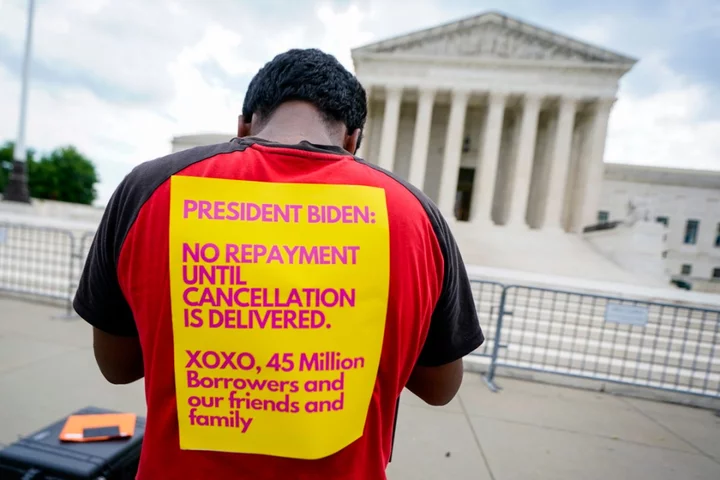
Supreme Court strikes down Biden’s plan to cancel student loan debts
The US Supreme Court has struck down President Joe Biden’s plan to cancel student loan debts for millions of Americans, reversing his campaign-trail promise as borrowers prepare to resume payments this summer. Chief Justice John Roberts delivered the 6-3 decision from the court’s conservative majority. The ruling, which stems from a pair of cases challenging the Biden administration and the US Department of Education, argues that the president does not have authority to implement sweeping relief, and that Congress never authorised the administration to do so. Within 30 minutes on the last day of its term, the court upended protections for LGBT+ people and blocked the president from a long-held promise to cancel student loan balances amid a ballooning debt crisis impacting millions of Americans. Under the plan unveiled last year, millions of people who took out federally backed student loans would be eligible for up to $20,000 in relief. Borrowers earning up to $125,000, or $250,000 for married couples, would be eligible for up to $10,000 of their federal student loans to be wiped out. Those borrowers would be eligible to receive up to $20,000 in relief if they received Pell grants. Roughly 43 million federal student loan borrowers would be eligible for that relief, including 20 million people who stand to have their debts canceled completely, according to the White House. Roughly 16 million already submitted their applications and received approval for debt cancellation last year, according to the Biden administration. The long-anticipated plan for debt cancellation was met almost immediately with litigation threats from conservative legal groups and Republican officials, arguing that the executive branch does not have authority to broadly cancel such debt. Six GOP-led states sued the Biden administration to stop the plan altogether, and a federal appeals court temporarily blocked any such relief as the legal challenges played out. Since March 2020, with congressional passage of the Cares Act, monthly payments on student loan debt have been frozen with interest rates set at zero per cent. That Covid-19-pandemic era moratorium, first enacted under Donald Trump and extended several times, was paused a final time late last year – until the Education Department is allowed to cancel debts under the Biden plan, or until the litigation is resolved, but no later than 30 June. Payments would then resume 60 days later. The amount of debt taken out to support student loans for higher education costs has surged within the last decade, alongside growing tuition costs, increased private university enrollment, stagnant wages and GOP-led governments stripping investments in higher education and aid, putting the burden of college costs largely on students and their families. The crisis has exploded to a total balance of nearly $2 trillion, mostly wrapped up in federal loans. Millions of Americans also continue to tackle accrued interest without being able to chip away at their principal balances, even years after graduating, or have been forced to leave their colleges or universities without obtaining a degree at all while still facing loan repayments. Borrowers also have been trapped by predatory lending schemes with for-profit institutions and sky-high interest rates that have made it impossible for many borrowers to make any progress toward paying off their debt, with interest adding to balances that exceed the original loan. One analysis from the Education Department found that nearly 90 per cent of student loan relief would support people earning less than $75,000 per year. The median income of households with student loan balances is $76,400, while 7 per cent of borrowers are below the poverty line. That debt burden also falls disproportionately on Black borrowers and women. Black college graduates have an average of $52,000 in student loan debt and owe an average of $25,000 more than white graduates, according to the Education Data Initiative. Four years after graduating, Black student loan borrowers owe an average of 188 per cent more than white graduates. Women borrowers hold roughly two-thirds of all student loan debt, according to the American Association of University Women. Mr Biden’s announcement fulfilled a campaign-trail pledge to wipe out $10,000 in student loan debt per borrower if elected, though debt relief advocates and progressive lawmakers have urged him to cancel all debts and reject means-testing barriers in broad relief measures. In November 2020, the president called on Congress to “immediately” provide some relief for millions of borrowers saddled by growing debt. “[Student debt is] holding people up,” he said at the time. “They’re in real trouble. They’re having to make choices between paying their student loan and paying the rent.” This is a developing story Read More Supreme Court allows Colorado designer to deny LGBT+ customers in ruling on last day of Pride Month Biden condemns Supreme Court striking down affirmative action: ‘This is not a normal court’ Justice Ketanji Brown Jackson delivers searing civil rights lesson in dissent to affirmative action ruling
2023-06-30 23:16

Melania Trump hawks $50 NFTs to ‘celebrate our great nation’ ahead of July 4
Melania Trump is launching a collection of $50 non-fungible tokens (NFTs) featuring US landmarks in time for the 4th of July. The former first lady’s “1776 Collection” includes images of Mount Rushmore, the Statue of Liberty and the Liberty Bell, set to patriotic-themed music. Ms Trump’s office said in a statement that each NFT was designed to celebrate the “foundations of American ideals”. “The 1776 Collection of artwork draws inspiration from several iconic landmarks of our nation, which I had the privilege of visiting during the time I served as first lady,” Ms Trump said. “I am proud to celebrate our great nation and remain inspired by the words contained within the Declaration of Independence.” An NFT is a blockchain-based certificate verifying ownership. The 1776 Collection was created on the Solana blockchain, and went on sale on Thursday. Ms Trump’s office said a portion of the sale price would go to support foster children. The site did not immediately respond to a request for further details about what percentage of the proceeds would be donated. Ms Trump has previously dabbled in NFTs since leaving the White House. In 2021, she launched a digital watercolour painting of her eyes for $180 each. Then in 2022, Ms Trump faced accusations of bidding $185,000 in an auction for her “Head of State Collection 2022.” An analysis of Solana blockchain transactions by Bloomberg found the winning bid of 1800 SOL came from a wallet that belonged to the entity that originally listed the project for sale. Read More Trump news - live: DOJ prepares to hit Trump with new charges as ex-official cooperates in 2020 election probe Trump lashes out at ‘fake’ Jake Tapper after CNN host cuts away from arraigned ex-president meeting fans Meet Jesse Watters, the Fox News host helming Tucker Carlson’s primetime slot Prosecutors are prepared to hit Trump and his allies with new charges, sources say
2023-06-30 22:19
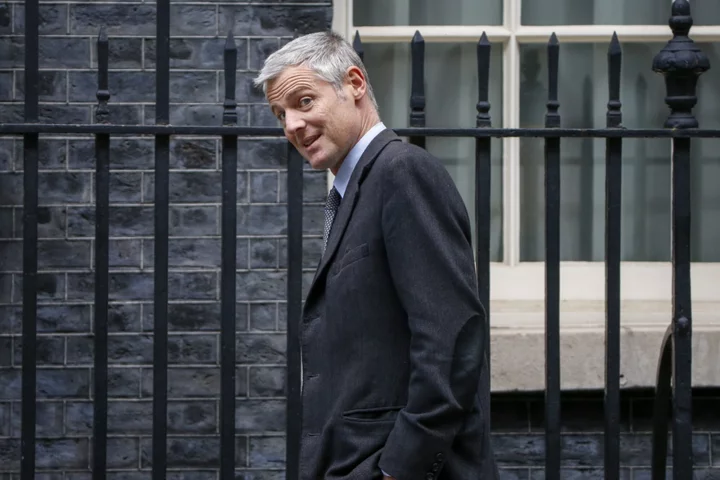
Sunak Slammed Over Environment as UK Climate Minister Quits
Climate Minister Zac Goldsmith quit Rishi Sunak’s UK government on Friday with an excoriating broadside against the prime
2023-06-30 18:16
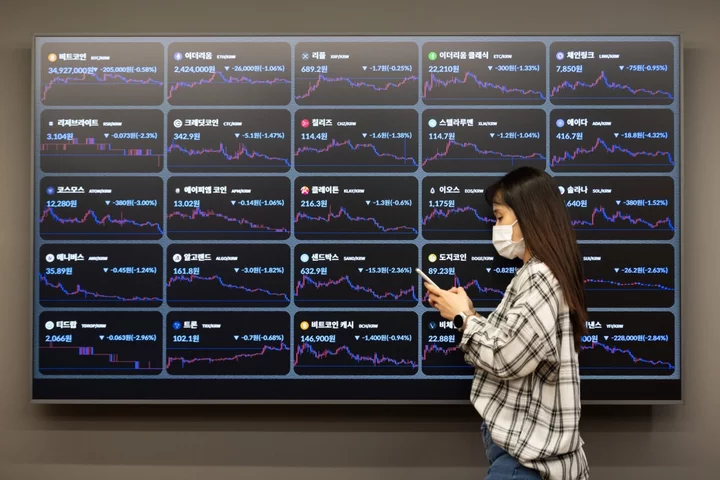
South Korea Passes Inaugural Standalone Crypto Bill After Spate of Scandals
South Korea approved its first standalone digital-asset bill to boost investor protection just over a year after the
2023-06-30 14:29
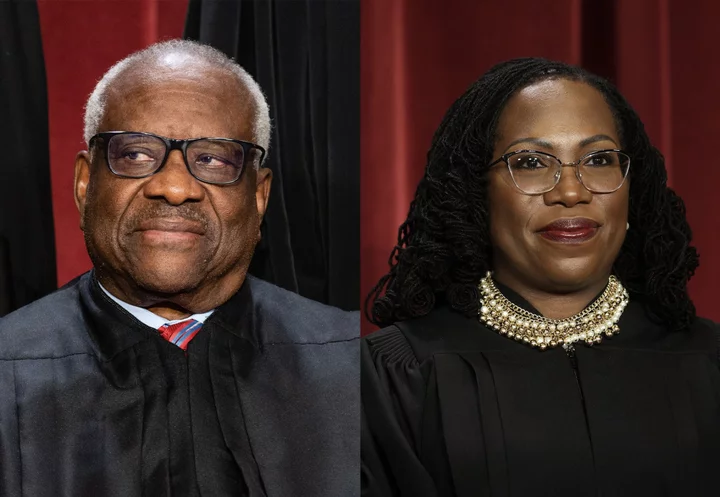
Supreme Court’s Black Justices Spar Over Affirmative Action
The US Supreme Court’s two Black justices sparred over the meaning and impact of race in dueling opinions
2023-06-30 08:54
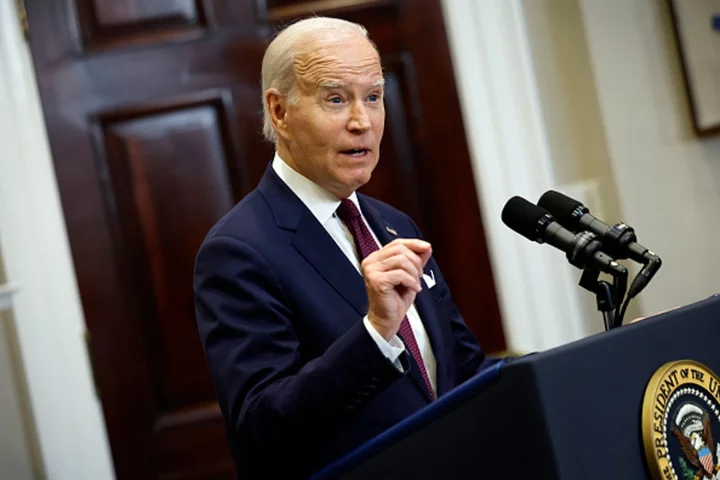
Biden condemns Supreme Court striking down affirmative action: ‘This is not a normal court’
President Joe Biden on Thursday said he “strongly, strongly disagree[d” with the Supreme Court’s decision to strike down the use of affirmative action programmes in college admissions decisions and condemned the six-justice majority that did so as “not a normal court”. Mr Biden’s harsh words for the highest court in the land came in response to a reporter’s query on whether the court was acting as a “rogue court,” just after he addressed the landmark decision in brief remarks before departing the White House for New York. Speaking from the Roosevelt Room in the West Wing, the president echoed the dissenting Justices, Sonia Sotomayor, Elena Kagan and Ketanji Brown Jackson, in his reaction to the ruling, which ends the long-standing precedent that allowed colleges and universities to use affirmative action to help establish a diverse group of accepted students. “Discrimination still exists in America. Today’s decision does not change that,” Mr Biden said in a brief press conference. He added: “I believe our colleges are stronger when they’re racially diverse. Our nation is stronger because we are tapping into the full range of talent in this nation. We cannot let this decision be the last word.” The rulings come from two consolidated cases, Students for Fair Admissions v University of North Carolina and Students for Fair Admissions v Harvard College. Both cases were brought forth by the anti-affirmative action organisation Students for Fair Admissions. That group, which is headed by conservative legal strategist Edward Blum, has for years made attempts to give the court’s GOP-appointed majority a chance to gut previous court precedents which have been used to justify limited use of race-based preferences in college admissions. While the court upheld such programmes in a decision nearly two decades, ago, the newly-emboldened conservative majority swept away any legal justification for them in Thursday’s opinions. In a 6-3 and 6-2 decision, the Court’s conservative majority sided with Students for Fair Admissions claiming the use of race-conscious admissions was a violation of the Equal Protection Clause of the 14th Amendment. Now, higher education institutions will no longer be allowed to consider race as a factor in admissions. Instead, students who wish to have their race or culture considered in their application will have to volunteer the information like in their personal essay. At the end of the press conference, Mr Biden responded to a question about the court’s decision to strike down a long-standing precedent: “This is not a normal Court.” Leaders from Harvard said in a letter that they would “comply” with the court’s decision but emphasised that “deep and transformative teaching, learning, and research depend upon a community comprising people of many backgrounds, perspectives, and lived experiences.” Mr Biden said he is directing the Department of Education to analyse best practices for high education institutions to create more inclusive and diverse student bodies without using race as a conscious factor in admissions and recruiting. The Harvard Black Students Association called the court’s decision, “detrimental”, adding that it “poses a significant threat to the future of the Black community on and beyond our campus.” “It is evident that the college application system cannot maintain holistic evaluation without taking into consideration how race profoundly influences our experiences, perspectives, and identities in multifaceted ways,” the Harvard Black Students Association wrote. Derrick Johnson, the president and CEO of the NAACP, said in a statement: “In a society still scarred by the wounds of racial disparities, the Supreme Court has displayed a willful ignorance of our reality.” Discussions around affirmative action have generated debate among Republicans and Democrats for years. Those in support of it believe it is necessary to create fair and equal opportunity for students of color because higher education institutions have failed at creating diverse student bodies. Those against affirmative action believe it puts other students, like white or Asian American students, at a disadvantage. Former president Donald Trump celebrated the ruling calling it “everyone was waiting for” in a post on Truth Social. “We’re going back to all merit-based – and that’s the way it should be!” Mr Trump wrote. Mr Trump appointed three of the six conservative Justices on the Court while serving as President of the United States – Justices Neil Gorsuch, Brett Kavanaugh and Amy Coney Barrett. Mr Trump’s former vice president, Mike Pence, also expressed support for the Court’s decision, writing on Twitter, “I am honored to have played a role in appointing three of the Justices that ensured today’s welcomed decision.” He added: “There is no place for discrimination based on race in the United States, and I am pleased that the Supreme Court has put an end to this egregious violation of civil and constitutional rights in admissions processes, which only served to perpetuate racism.” The ruling will likely have repercussions beyond higher education institutions, extending to elementary, middle and high schools as well as workplaces and more as it opens a door for challenges to racial diversity programs. Read More Justice Ketanji Brown Jackson delivers searing civil rights lesson in dissent to affirmative action ruling How the government that promised to ‘stop the boats’ has lost control of its immigration policy Clarence Thomas says he doesn’t have a ‘clue’ what diversity means as Supreme Court takes aim at affirmative action One year after the anti-abortion ruling, the White House keeps a spotlight on the issue
2023-06-30 02:16
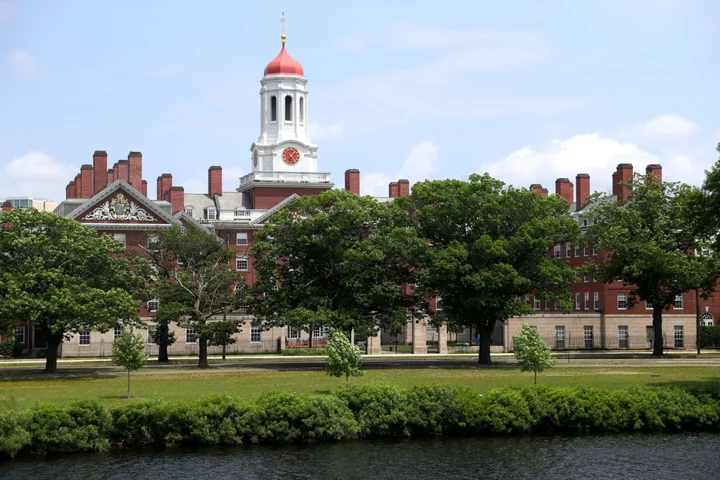
Supreme Court Rejects Use of Race in University Admissions
The US Supreme Court effectively barred universities from using race as a factor in university admissions, marking the
2023-06-29 22:45

NYC Air Quality Alerts Return, Flights Canceled: Weather Watch
The eastern US is covered with air quality alerts from Iowa to Maine, including New York, as smoke
2023-06-29 20:28

EssilorLuxottica Adds Jimmy Choo to Its Deep License Portfolio
EssilorLuxottica SA, the world’s biggest eyeglass maker, will produce Jimmy Choo Eyewear under a 10-year licensing deal starting
2023-06-29 16:15
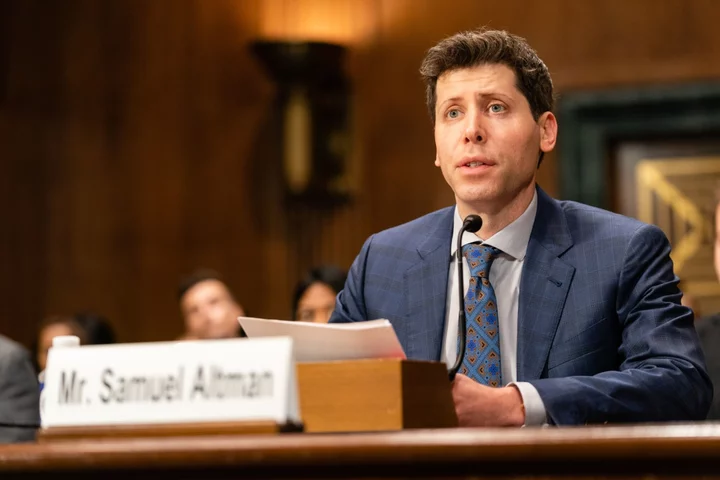
ChatGPT Creator OpenAI Sued for Theft of Private Data in ‘AI Arms Race’
ChatGPT creator OpenAI Inc. is stealing “vast amounts” of personal information to train its artificial intelligence models in
2023-06-29 07:47
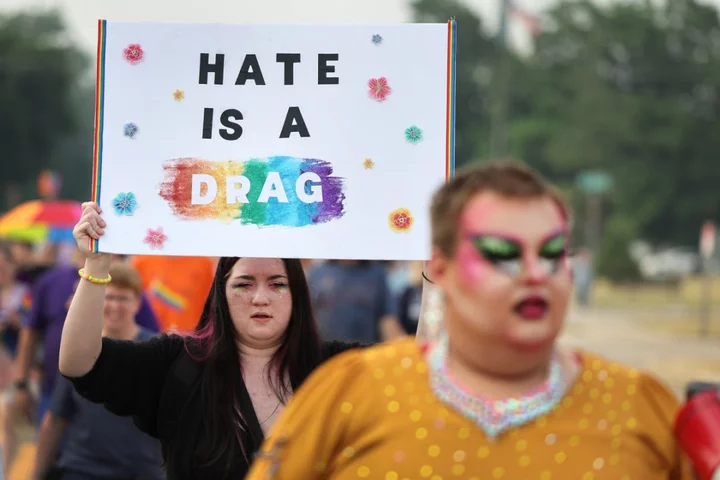
More than half of Americans have experienced online hate and harassment, report finds
More than half of all Americans have experienced online hate or harassment within their lifetimes, while reports of online abuse among teenagers and LGBT+ people have surged within the last year, according to an annual survey from a leading civil rights group. The Anti-Defamation League’s fifth annual survey charts a dramatic increase in reports of online hate and harassment among several groups over the last year, including 51 per cent of teenagers between ages 13 and 17 – an increase of 15 per cent from the same point last year. Forty-seven per cent of LGBT+ people, 38 per cent of Black people, and 38 per cent of Muslims have reported online hate and harassment over the last 12 months, according to the report, which calls on Congress, the White House and social media companies to implement stronger protections against online abuse. “We’re confronted with record levels of hate across the internet, hate that too often turns into real violence and danger in our communities,” according to a statement from ADL CEO Jonathan Greenblatt. “The time for talking, and for planning, is long over. It’s time to execute on the priorities set out by the White House and other policymakers, and it’s time for big tech companies to deliver on their promises to reduce hate online.” Reports of online abuse are particularly acute among transgender people; 76 per cent of trans respondents said they have been harassed online within their lifetimes, and more than half experienced such abuse within the previous 12 months – the most among any demographic included in the survey. “Due to the recent proliferation of extreme anti-transgender legislation and rhetoric, ADL sampled transgender individuals separately this year,” according to the report. By the end of May, state lawmakers had introduced more than 500 bills impacting LGBT+ people in 2023, including 220 bills specifically targeting trans and nonbinary Americans, according to an analysis from the Human Rights Campaign. In remarks at the White House earlier this month, President Joe Biden condemned the “totally, thoroughly unjustified and ugly” wave of legislation impacting LGBT+ Americans. A separate report from the ADL and GLAAD discovered more than 350 targeted threats against LGBT+ people within the last year, including online harassment as well as armed protests at drag performances, bomb scares against hospitals that provide gender-affirming healthcare, and other acts of violence, including a mass shooting inside a Colorado Springs LGBT+ nightclub. Incidents targeting drag performers and the people and venues that host them have accelerated across the US, with similar threats surfacing in the UK, according to a separate recent report from the Institute for Strategic Dialogue. The group collected 203 on- and offline threatening incidents within the last year. The ADL’s latest survey of 2,139 people was performed online with the ADL and YouGov from 7 March through 24 March. Read More More than 200 anti-drag attacks documented across US as nation leads global threats to LGBT+ events Ritchie Torres, the only openly gay Black man in Congress, on how he fights GOP ‘bullying’ of LGBT+ people Elon Musk promotes transphobic content as hate speech surges on his far-right platform White House rejects Lauren Boebert’s claim that antisemitism plan will be used ‘go after conservatives’
2023-06-29 00:55

Cambodian leader Hun Sen, a huge Facebook fan, says he is jumping ship to Telegram
Cambodian Prime Minister Hun Sen, a devoted and very active user of Facebook — on which he has posted everything from photos of his grandchildren to threats against his political enemies — said Wednesday that he will no longer upload to the platform and will instead depend on the Telegram app to get his message across. Telegram is a popular messaging app that also has a blogging tool called “channels.” In Russia and some of the neighboring countries, it is actively used both by government officials and opposition activists for communicating with mass audiences. Telegram played an important role in coordinating unprecedented anti-government protests in Belarus in 2020, and currently serves as a major source of news about Russia’s war in Ukraine. The 70-year-old year Hun Sen is listed as having 14 million Facebook followers, though critics have suggested a large number are merely “ghost” accounts purchased in bulk from so-called “click farms,” an assertion the long-serving prime minister has repeatedly denied. The Facebook accounts of Joe Biden and Donald Trump by comparison boast 11 million and 34 million followers, respectively, though the United States has about 20 times the population of Cambodia. Hun Sen officially launched his Facebook page on Sept. 20, 2015, after his fierce political rival, opposition leader Sam Rainsy, effectively demonstrated how it could be used to mobilize support. Hun Sen is noted as a canny and sometimes ruthless politician, and has since then managed to drive his rival into exile and neutralize all his challengers, even though Cambodia is a nominally democratic state. Hun Sen said he is giving up Facebook for Telegram because he believes the latter is more effective for communicating. In a Telegram post on Wednesday he said it will be easier for him to get his message out when he is traveling in other countries that officially ban Facebook use. China, the top ally of his government, is also the biggest country with a Facebook ban. Hun Sen has 855,000 followers so far on Telegram, where he appears to have started posting in mid-May. It is also possible that Hun Sen’s social media loyalty switch has to do with controversy over remarks he posted earlier this year on Facebook that in theory could see him get at least temporarily banned from the platform. As the country’s top leader for 38 years, he has earned a reputation for heated rhetoric, and in January, speaking at a road construction ceremony, he decried opposition politicians who accused his ruling Cambodian People’s Paty of stealing votes. “There are only two options. One is to use legal means and the other is to use a stick,” the prime minister said. “Either you face legal action in court, or I rally (the Cambodian) People’s Party people for a demonstration and beat you up.” His remarks were spoken on Facebook Live and kept online as a video. Perhaps because of heightened consciousness about the power of social media to inflame and trigger violence in such countries as India and Myanmar, and because the remarks were made ahead of a general election in Cambodia this July, complaints about his words were lodged with Facebook’s parent company, Meta. Facebook’s moderators declined to recommend action against Hun Sen, judging that his position as a national leader made his remarks newsworthy and therefore not subject to punishment despite their provocative nature. However, the case was forwarded in March to Meta’s Oversight Board, a group of independent experts that is empowered to render an overriding judgment that could limit Hun Sen’s Facebook activities. They may issue a decision in the next few weeks. The case is being closely watched as an indicator of where Facebook will draw the line in countries with volatile political situations. Hun Sen said his Facebook account will remain online but he will no longer actively post to it. He urged people looking for news from him to check YouTube and his Instagram account as well as Telegram, and said he has ordered his office to establish a TikTok account to allow him to communicate with his country’s youth.. ___ Peck reported from Bangkok. Dasha Litvinova contributed from Tallinn, Estonia. Read More Ukraine war’s heaviest fight rages in east - follow live Charity boss speaks out over ‘traumatic’ encounter with royal aide Cambodian lawmakers approve changes to election law that disqualify candidates who don't vote Trump’s latest defence in the classified documents case: ‘Bravado’ Trump gives ‘bravado’ defence for secret papers tape as he sues E Jean Carroll – live
2023-06-29 00:54
You Might Like...
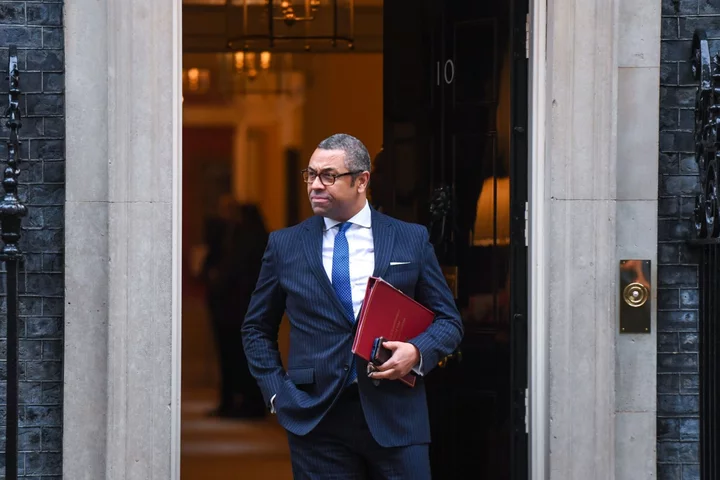
UK Pledges £58 Million to Support Food Security in Nigeria
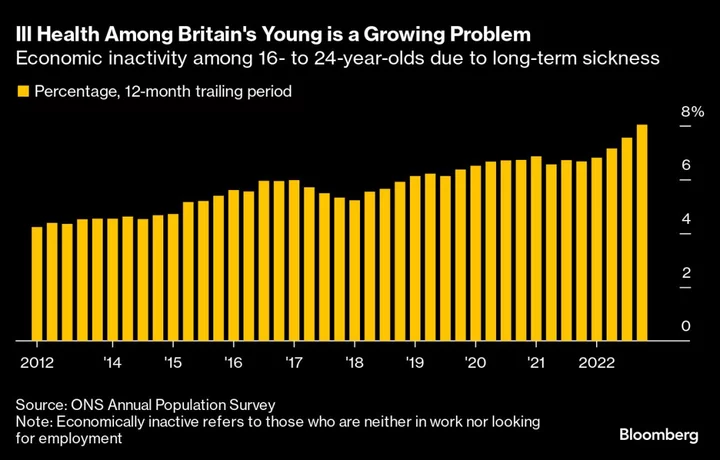
Wealth, Social Class Impact How Gen Z Plan Their Future

Korean Prosecutors Seek Crypto Millions Tied to Do Kwon and TerraUSD

Biden Touts Climate Efforts as Advocacy Groups Back Reelection
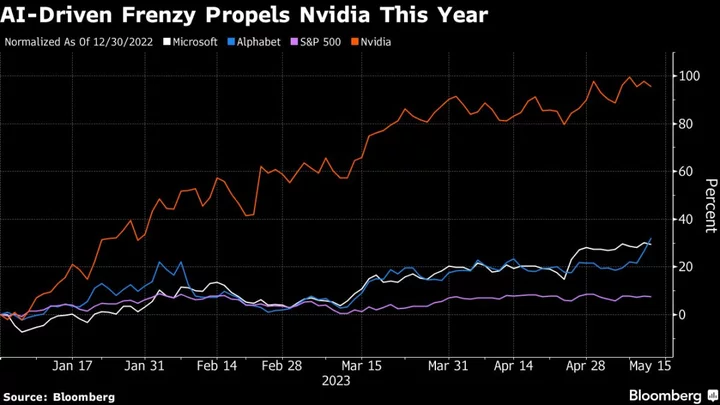
AI Frenzy Accounts for All of S&P 500 Gain in 2023, SocGen Says

When is the World Series of Warzone Final?

Heat Stress Deaths Show Europe Isn’t Ready for Climate Change

Microsoft Gaming Chief Doesn’t See a Need for New Xbox Yet
